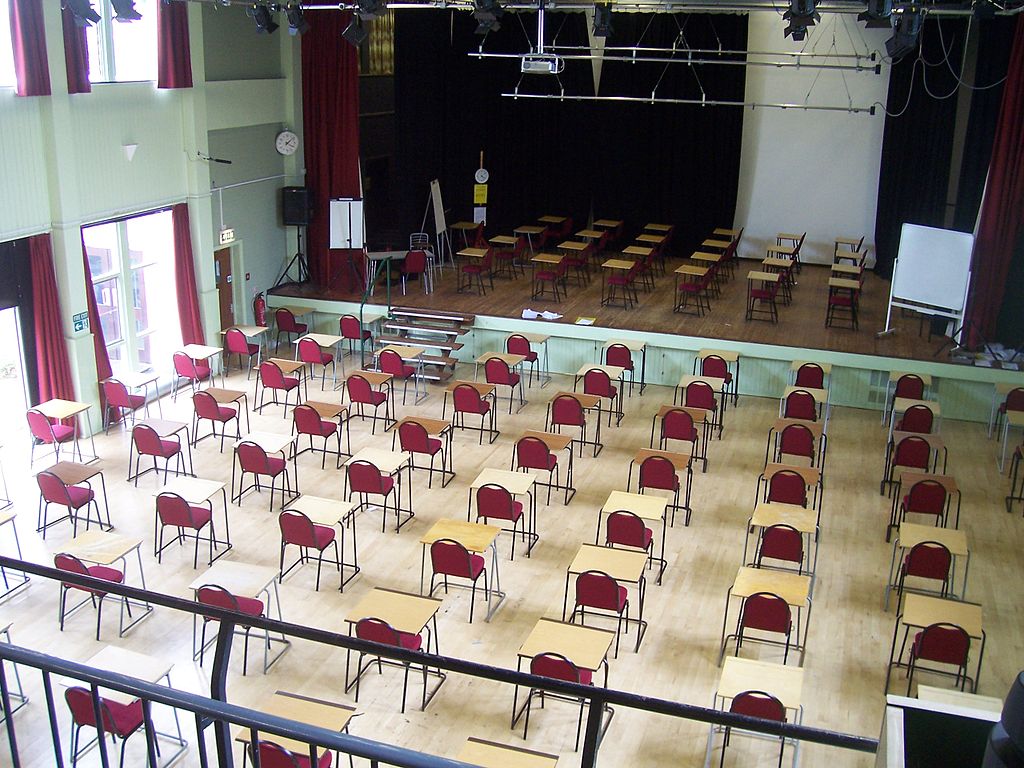London, England —(Map)
United Kingdom (UK) students who want to go to university will now have their A-level test grades based on predictions by their teachers instead of a government formula. The sudden change comes in response to strong protests over the formula’s fairness.
😕
This image has not been loaded because of your cookie choices. To view the content, you can accept 'Non-necessary' cookies.
UK students who want to go to university will now have their A-level test grades based on predictions by their teachers instead of a government formula. The sudden change comes in response to strong protests over the formula’s fairness.
Every year, 18-year-old students in the UK take a special set of tests called A-levels. The tests are very challenging, and students spend two years preparing for them. A-levels play a huge part in what colleges and universities a student will be able to get into.
This year, because of the coronavirus, most schools have been closed since March, and A-level exams were canceled.
😕
This image has not been loaded because of your cookie choices. To view the content, you can accept 'Non-necessary' cookies.
Every year, 18-year-old students in the UK take a special set of tests called A-levels. The tests are very challenging, and students spend two years preparing for them. A-levels play a huge part in what colleges and universities a student will be able to get into.
The government said that because the tests were canceled, this year’s exam grades would be calculated.
The government group in charge of exams and tests in England is known as “Ofqual” (Office for Qualifications and Exam Regulation). Ofqual came up with an “algorithm” – a special formula to decide what grade should be given to each student.

(Source: WikimediaCommons.org.)
Part of the grade was supposed to be based on a prediction from the teacher or school about the score the student would have gotten on the test if they’d had a chance to take it. The predictions were based on actual work the students had done.
But in order to try to make this year’s results match up with results from earlier years, Ofqual’s algorithm would be used to adjust the grade, based on the student’s past grades, as well as how other students from the school had done on the exams in the past.
The government said the algorithm was meant to make things fair, in case the teachers and the schools had given high predictions in order to make their schools look good.

(Source: Lewser~commonswiki. [Public domain], via Wikimedia Commons.)
But the results turned out to be very unfair. Students who went to rich, private schools with a strong history of student performance on A-levels kept the grades predicted by their teachers.
But students at state schools in poorer areas often had their grades lowered, even if they were excellent students.
Ofqual reported that over 200,000 students – nearly 40% of the test-takers – got grades that were one or two grades lower than the grades predicted by their schools.
😕
This image has not been loaded because of your cookie choices. To view the content, you can accept 'Non-necessary' cookies.
When the grades for the A-levels came out on Thursday, it triggered strong protests right away. Students, parents, and teachers have been protesting since then, putting pressure on the government.
When the grades for the A-levels came out on Thursday, it triggered strong protests right away. Students, parents, and teachers have been protesting since then, putting pressure on the government. A similar situation happened in Scotland the week before, and Scotland quickly dropped its plan to lower student grades.
Just last week, UK Education Secretary Gavin Williamson said that the government wouldn’t change its mind about the grades. But on Monday, the government suddenly announced that it was dropping the algorithm, and would rely on the grades given by teachers.
😕
This image has not been loaded because of your cookie choices. To view the content, you can accept 'Non-necessary' cookies.
Last week, Education Secretary Gavin Williamson (above) said the government wouldn’t change its mind about the grades. On Monday, the government announced that it was dropping the algorithm, and would use the grades given by teachers.
It’s not clear whether the change in grades has come too late to help students hurt by the algorithm. Many universities may have already given some of their few spots to students who scored high in the early results released by the government.
Did You Know…?
UK students who are 16 take similar tests called GCSEs. GCSE students have at least avoided some of the confusion, since the grades haven’t come out yet. Following the protests over A-level grades, the government has decided to use teacher predictions for the GCSEs as well. The results are expected to come out on Thursday.
😕
This map has not been loaded because of your cookie choices. To view the content, you can accept 'Non-necessary' cookies.
